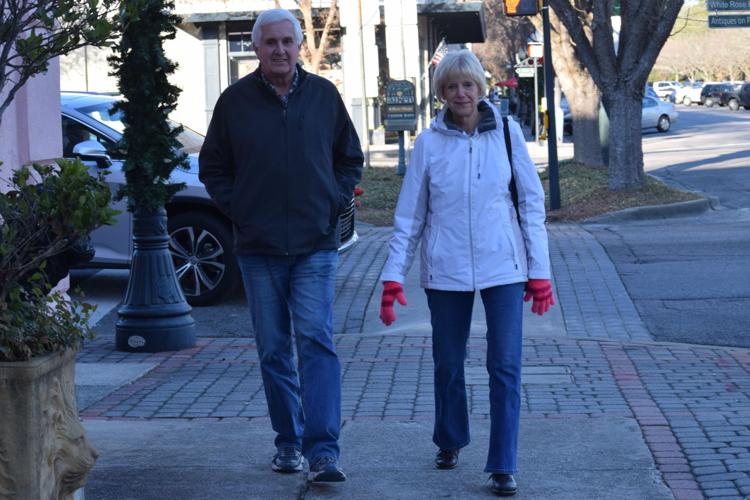Last week brought freezing temperatures, snow and ice across South Carolina, even as far as the Palmetto State's coastal region when a winter storm blanketed beaches and palm trees with snow and ice.
When temperatures drop in cooler months, health experts often share a familiar message to residents in families - bundle up, stay warm and indoors (when necessary) to prevent cold-related illnesses.
A good way to be prepared for cold-weather health problems includes taking a first aid and emergency resuscitation (CPR) course, as well as taking preventative action by preparing homes and cars in advance for winter emergencies, the Centers for Disease Control and Prevention says on cdc.gov.
There, it outlines symptoms and tips for hypothermia, or abnormally low body temperature, and frostbite. Both require immediate medical condition, and victims should be taken to warm rooms or shelters where they can be treated.
There is another factor that also could impact your health during winter when trying to stay warm: exposure to carbon monoxide, or CO.
Sources of CO poisoning include gas-powered generators, charcoal grills, propane stoves, and charcoal briquettes for both cooking and heating indoors, motor vehicles, fire, boats, and power washers and other gas-powered tools, according to a news release issued by S.C. Department of Health and Environmental Control.
It is an odorless and colorless gas, one that has been characterized as a "silent killer." The gas can cause sudden illness and death if inhaled, according to the state health agency.
January is recognized as Carbon Monoxide Poisoning Awareness Month, but poisoning could happen at any time regardless of outdoor temperature, DHEC said in a prepared statement.
However, "winter time is more problematic since more people are inside, and the use of fireplaces, furnaces and portable heaters is on the increase," the statement reads.
Owens Goff, director of DHEC's injury and violence prevention, is reminding families CO poisoning can happen to anyone.
"Everyone is at risk," Goff said in an interview with the Aiken Standard, "that would include infants and elderly and people with chronic health conditions like asthma."
Most common symptoms include headache, dizziness, upset stomach, chest pains and confusion.
"The signs and symptoms are usually referred to more flu-like," Goff said.
He added the health event is one that is preventable. Goff firstly suggests people have their cars and emission systems checked on an annual basis, ensuring everything is vented correctly and working properly.
Other tips DHEC has offered include:
- Installing a battery-operated or battery back-up CO detector in your home and check or replace the battery when you change the time on your clocks each spring and fall. (These typically range from $15 to $25 and resemble a smoke detector, according to Goff). If the detector sounds, leave your home immediately and call 911.
- Seeking prompt medical attention if you suspect CO poisoning and are feeling dizzy, light-headed, or nauseated.
- Not using a generator, charcoal grill, camp stove, or other gasoline or charcoal-burning device inside your home, basement, or garage or near a window.
- Not running car or truck inside a garage attached to your house, even if you leave the door open.
- Not burning anything in or using a stove or fireplace that isn't vented.
- Not heating your house with a gas oven.
On average, nine South Carolinians die every year from carbon monoxide poisoning and annually they result in 243 hospitalizations and 1,713 visits to the emergency department, according to statistics provided by the agency.
Hospitalizations and emergency room visits due to those poisoning cases have risen since 2000, by an average of 5 percent each year. Hospitalization rates have risen by 60 percent since 2000.
Overall, Goff says from an active living standpoint, during the winter months people should stay properly dressed and in layers in the cold.
"That would also help if you are living in a home," he said, adding those who layer up even inside can also decrease their energy use and/or use of other heating systems.




